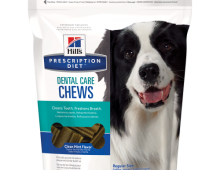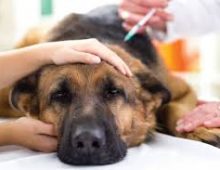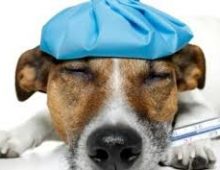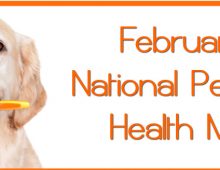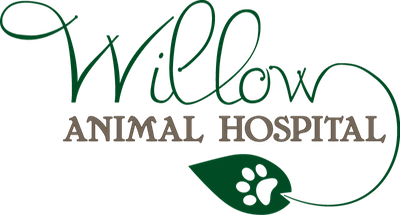Category Archives: cats
2021 Vaccination Clinics CANCELLED
We have made the difficult decision to cancel all 2021 Vaccination Clinics (usually held in January & February, in Oulu, Port Wing, Maple, Mason & Mellen). We apologize for any inconvenience! Please call our clinic to schedule an in-clinic appointment for your pets, or a house call. Thank you for your understanding.
(Photo courtesy of: https://rotary5340.org)
Vaccination Clinics
Dates have been chosen for the 2020 Willow Animal Hospital Vaccination Clinics!
See our calendar for the upcoming vaccination clinics in January and February. We will be going to Oulu, Port Wing, Maple, Mason, and Mellen, WI.
We offer vaccinations for dogs and cats at a discounted price from our regular in-clinic prices.
Please call us at 715-682-2470 to notify us that you are coming so that we can be better prepared. If we have never vaccinated your pet in the past, please have their records emailed or faxed to our office before the clinic.
We do not perform diagnostics at this clinic. If your pet is suffering from a medical condition please schedule a regular exam in a veterinary facility.
These events are Cash or check only.
Fresh breath for Valentine's Day!
February is National Pet Dental Health Month!! To help the special pet in your life have their brightest, whitest smile, stop by our clinic and pick up a bag of dental care treats for Valentine’s Day. We just received our first shipment of the new Hill’s Prescription Diet Canine Dental Care Chews and have a limited supply of free samples! We also carry dental treats for cats, which have proven very popular with the kitties.
For more ways to help keep your pets’ breath fresh and their mouths health, click HERE
2017 Vaccination Clinics
Our vaccination clinics offer a closer-to-home option for keeping up on your dog or cat’s routine vaccinations. We visit Oulu, Port Wing, Cornucopia, Maple, Brule, Mason and Mellen annually (just in time for dog licensing). Stop by for annual heartworm and tick-borne diseases testing/prevention, internal parasite treatment/prevention, and discounted vaccinations for your faithful pets!
Click HERE for more information about dates, times and locations, or call our clinic.
(photo courtesy of: http://allcarepetpacifica.com/service/vaccinations/)
Happy Thanksgiving!!
Can my dog have turkey scraps? My cat likes cranberry sauce; is that okay? If you’re wondering what’s safe for your pets, you are not alone. To get you started, remember to Be Careful of the Bones!! From all of us here at Willow, have a safe & happy Thanksgiving!
(photo courtesy of: http://www.vvcofhamburg.com/thanksgiving-pet-safety-tips/)
Have Cat, Will Travel..?
Does the thought of bringing your cat to the vet give you nightmares? Do you avoid routine veterinary care for your cherished companion because you know you probably won’t see him again for several days (about the same amount of time it will take for the scratches on your arms & face to start healing)? If so, here are a few simple tips that can make regular visits more enjoyable for both you & Kitty:
1. Leave your open carrier in a cat-friendly spot at home, with a familiar blanket, toy, treats, etc. inside, to encourage your cat to go in & become more comfortable with the carrier.
2. Practice car trips with your cat that DON’T end at the vet. Make the trip fun, with treats, toys & lots of petting/praising.
3. Wipe or spray the inside of your carrier with Feliway®, a synthetic pheromone that has been shown to have a calming effect in cats (available at our clinic or online store).
4. Perform mock ‘exams’ on your cat, similar to what the vet will do. This makes your cat more comfortable with being handled.
5. Leave your cat inside its carrier while in the waiting room. The waiting room can be loud & scary, & most cats prefer to ‘hide’ somewhere.
6. Start young! If you have a new kitten, practice these tips from an early age to help avoid issues later on.
Don’t let a ‘scaredy cat’ keep you from maintaining a healthy cat!
(photo courtesy of: www.02varvara.wordpress.com)
Rabies is Incurable?!?
Rabies is a zoonotic disease, meaning it can be transmitted between people and animals. Wildlife like bats, skunks, and raccoons are some of the most common carriers of the disease. Infection occurs when saliva of the infected animal enters the bloodstream of another mammal (this is often from a bite). The disease can take weeks to months to develop symptoms, but once they develop the disease is fatal. Recent confirmed cases of rabies in bats in Ashland and Bayfield Counties have been documented. Please consider the following steps to protect yourself from this deadly disease:
•Keep your pets current on their rabies vaccination. It is only legally required in dogs, but highly recommend in other species (cats, horses, etc.). Not only will this protect your pet from rabies, but in turn it protects you from being exposed to rabies from your own pet.
•Keep your distance from mammalian wildlife, especially any exhibiting abnormal or sickly behavior (ex. a skunk roaming during daylight, a bat acting weak and sick)
•If you are bit by mammalian wildlife contact your local health department. They will direct you on how to submit the animal for rabies testing, if necessary. Only collect the animal if it can be done safely, and try to avoid damaging the head. If you cannot collect the animal, you should still contact your local health department for further instructions.
•If you find a bat in your house contact your local health department. Bat bites can often go unnoticed while you are sleeping. The health department will direct you on how to submit the animal for rabies testing, if necessary. Dr. Sarah Myers, Willow Animal Hospital
(photo courtesy of: www.delavanlakesvet.com)
TICKS: Beyond Lyme Disease & "Ewww!"
If you have lived in northern Wisconsin long enough you probably have run into a tick or two, or hundreds. You may be familiar with the most common risk with ticks as carriers of Lyme disease. Here are some things you may not know about tick diseases:
•The ticks in our area can carry many diseases that can effect both people and pets (Lyme, Anaplasmosis, Ehrlichiosis, and Rocky Mountain Spotted Fever are some of the most common)
•Of the many tick diseases, only Lyme disease has an available vaccine for dogs
•No vaccine (including the Lyme vaccine) is 100% effective at preventing diseases
•A multimodal approach to tick disease prevention is considered the most effective at keeping your pets safe (Lyme vaccine, topical or oral tick prevention products, daily tick checking, avoiding wooded or long grass areas during peak tick season)
•It can sometimes take several months after a tick bite for disease symptoms to develop
•Symptoms of tick diseases can include lethargy, anorexia, lameness, swollen painful joints, high fever
•The classic “bullseye” appearance of a tick bite that is described in people with Lyme disease is not typically seen in dogs
•Many tick disease infections carry a good prognosis if treated promptly and with the entire course of prescribed antibiotics
•Some tick disease infections can cause very serious side effects that may be fatal (ex. Lyme disease in some dogs can lead to a potentially fatal kidney failure)
Call us if you have other questions about tick diseases! Dr. Sarah Myers, Willow Animal Hospital
(photo courtesy of: www.pvguide.org)
Click HERE for 5 ways to protect your pet from Lyme disease.
Click HERE to learn more about protecting yourself & your family from Lyme disease.
Help! My Pet Has Bad Breath!!
February is National Dental Health month! Pets need dental care just as much as we do. Here are some common questions and answers about periodontal disease.
What are some signs of dental disease in my pet?
•Foul smelling breath, brown tartar accumulation on the teeth, food falling out of the mouth when chewing, and inability or difficulty eating hard food are some common signs. Some pets exhibit no signs at all.
What should I do if I think my pet has dental disease?
•Schedule an appointment to consult with your veterinarian. Often they will recommend a dental cleaning just like we get done at the dentist.
How do I prevent dental disease in my pet?
•Yearly or biannual dental cleanings are most effective at preventing and treating disease, but there are some at home products available to help decrease the frequency of cleanings. When you are looking for products to help prevent dental disease, look for the Veterinary Oral Health Council (VOHC) seal of approval. This ensures that veterinarians have studied the product and believe that it actually works. Products (in order of most effective to least effective) include: prescription dental diets, pet toothbrushes and toothpaste, dental chews, and dental sprays. These products are most effective when used on a daily basis. Dr. Sarah Myers, Willow Animal Hospital
(photo courtesy of: www.bmpah.com)
I miss you, my friend...
It is completely normal to feel devastated when your beloved pet dies. Everyone grieves differently, so here are some tips to help with your loss.
•The grieving process happens gradually so be patient with yourself and allow yourself to heal at your pace.
•It is normal to feel sad, frightened or lonely in response to the loss of your pet.
•Do not ignore your pain as this will make it worse in the long run. Talk to others about what you are feeling. Professional help is often a good option.
•Reach out to others that have lost pets (online message boards, pet loss hotlines, pet loss support groups).
•Rituals like holding a funeral for your pet can be very helpful for closure and a chance to share feelings with your family members.
•Creating a legacy for your pet can be a way to help remember the fun and love you shared with your pet (ex. preparing a memorial, planting a tree, making a scrapbook of pictures).
•Maintenance of your normal routine will make it easier for you and any other remaining pets. Dr. Sarah Myers, Willow Animal Hospital
(photo courtesy of: www.k9ofmine.com)


